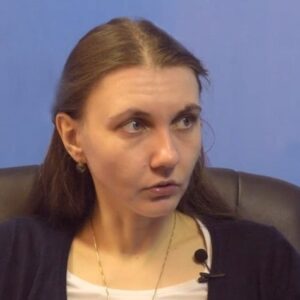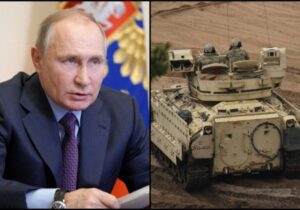Avem încă o expertă-doctor.

Textul expert apare la spotmedia. (memorare)
Într-un timp foarte scurt și printr-un spectacol mediatic abil, Rusia a reușit sa constrângă NATO și SUA să discute teme fără importanţă – extinderile NATO din ultimii 30 ani – sau care nu se discuta la modul serios – aderarea Ucrainei și a Georgiei -, în dauna problemei reale care este conflictul din Ucraina și posibilitatea unei noi intervenții în forță a Moscovei
Împricinatul-împielițat este acesta:

Am și eu o singură întrebare: de ce NATO și SUA au acceptat constrângerea?!
Iată interesul principal al diavolilor:
Ceea ce justifică necesitatea războiului pentru Rusia sunt realitățile din Crimeea – problemele în aprovizionarea cu apa.
Dar, ghinion: împăratul este gol.
În realitate, Rusia nu este mare putere și își face loc în politica globală doar prin acțiuni disruptive (declanșarea sau implicarea în războaie, propaganda și susținerea unor regimuri politice iliberale sau autoritare).
Well, mulțumim frumos, Doamna Doctor! Suntem și noi, acum, mai luminați!
La ziare.com grăiește doctoral mai vechiul nostru amic – HBM. Textul lui spune nimica-cu-ciucuri. Dar are link-ul către grăirea marionetei pusă pe post de Secretar General al NATO. (memorare)
Distractiv (Oana este Oana Lungescu) (memorare):
(22:02)
Steven Erlanger (The New York Times): Thank you Oana. Mr. Secretary General, question on the suggestion that at this point, NATO has prepared to reinforce Allied troops bordering Russia, whether Russia goes into Ukraine or not. Could you describe whether this came up in the meeting perhaps as a warning to the Russian delegation? And secondly, my memory may be failing, but I believe NATO went into Kosovo without a UN resolution but went in after the war with a UN resolution. Thank you.
NATO Secretary General: First of all, the whole idea that the breakdown of Yugoslavia was caused by NATO is wrong. You can study the history of Yugoslavia and it’s obvious that there are no NATO soldiers there, before after many years. And then we went in to stop atrocities. That was the case, and end bloody wars. That was the case in Bosnia-Herzegovina, and also in Kosovo after years of failed attempts to find a negotiated solution. Then there was a need to go in – broad support to go in – and to stop atrocities, also in Kosovo.
But at that stage, Yugoslavia had already broken down. And the first question was about… Well, we will always do what is necessary to protect and defend all Allies. And we are constantly assessing the need to adjust our presence in different parts of the Alliance. After Russia’s illegal annexation of Crimea in 2014, and continued destabilisation of eastern Ukraine, Donbass, we have implemented the biggest reinforcement of our collective defence in a generation, with battle groups in the eastern part of the Alliance, with high readiness of our forces, and with tripling the size for instance of the NATO Response Force, air policing, more naval presence. We do so to prevent any misunderstanding and not allow any room for miscalculation that NATO is there to protect and defend all Allies. And this is deterrence. This is defensive. And the purpose is to preserve peace. It’s not to provoke conflict, but to preserve peace, prevent conflict. And in this way, and of course, we will…and if Russia once again uses force against Ukraine and further invades Ukraine then we have to seriously look into the need to further increase our presence in the eastern part of the Alliance.
